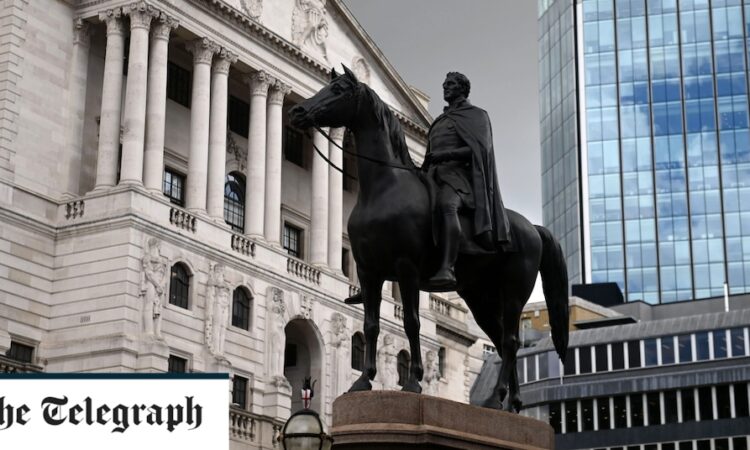
The yield on ten-year debt rose by almost 0.2 percentage points on Thursday to 4.37pc, putting it above Italy’s rate of 4.35pc.
It is the first time British yields have topped the G7 group of advanced economies since the dawn of the financial crisis in 2007. Even at the height of last year’s mini-budget turmoil, Italy’s borrowing costs were still above Britain’s.
The increase is a significant challenge to the credibility of the Chancellor Jeremy Hunt and Andrew Bailey, Governor of the Bank, who sought to present themselves as competent economic managers after the chaos of Ms Truss’s brief premiership.
It comes after markets were spooked by unexpectedly strong inflation data on Wednesday showing that prices rose by 8.7pc last month, significantly more than the Bank’s expectations of an 8.4pc increase. Britain’s inflation rate is comfortably the highest in the G7 and there are increasing concerns that it is being driven by wage growth rather than external shocks, making it even harder to contain.
Traders now expect interest rates to rise to 5.5pc by the end of the year, up from 4.5pc at present.
Rates in the swap market, which is used to price mortgages, have jumped as a result, forcing lenders to respond.
Lloyds, Virgin Money and Halifax all announced small mortgage rate rises on Thursday, with more big lenders expected to do the same in the coming days.
Gary Greenwood, a banking analyst at Shore Capital, said: “Other banks will need to follow suit if swap rates stay at their new level, which will push up the cost of borrowing for homeowners that have mortgages and so squeeze household finance.”






